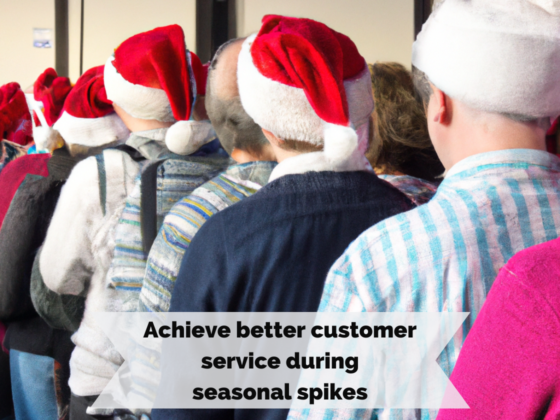Landry’s Inc. is a US-based corporation that has 72 restaurant brands and 600 restaurants, hotels, casinos and entertainment destinations across the US, turning over $3 billion in annual revenue.
The pandemic forced a shutdown of all their venues. When Landrys reopened, they faced a dilemma. They couldn’t recruit more call centre staff to handle customer demand for the Golden Nugget Hotel and Casinos.
You can’t fill gaps in call centre staff overnight, and once staff are on the payroll they need training. To add to the misery, call centres have a hard time keeping staff.
Landrys was receiving 40,000 calls per month they couldn’t answer while they searched for more agents.
So what did they do about it?
Brian Jeppesen, Landry’s Director of Contact Center Operations, discussed with Kane Simms on VUX World how Landry’s used AI to make up for lost revenue. It’s well worth a read – this is one of the best case studies we’ve seen yet in conversational AI!
The cost of silence
Let’s not underestimate how important good service is. In a recent Salesforce study, 70% of customers said they value convenience over brand. 83% use or would use self-service options. There’s a growing trend towards AI assistant preference too.
But all call centres face these common challenges; recruitment, unmanageable workloads and high staff attrition to boot. For Landry’s, the inability to recruit meant those 40,000 additional calls per month translated to a 30-40% abandonment rate, with long call wait times, too.
Brian did some digging and found that, among the calls being abandoned were revenue producing calls; hotel bookings. So, Landry’s were not only missing out on sales, but customers were giving up on their call when they had to wait too long, which might cause them to think twice before trying to book again in the future.
At around $200 per room, per night, that could be anywhere up to $8m per month of lost revenue, if each one of those abandoned calls was a booking enquiry. Even if only 20% of those calls were bookings, that’s still somewhere in the region of $1.6m per month of lost revenue.
You can call me AI
As you can imagine, Landry’s knew they had to do something. Their solution exceeded expectations.
They implemented a voice assistant within the call centre to take some of this demand. The voice assistant, implemented by Poly AI, handled routine requests that didn’t require human intervention. Frequently asked questions such as, “what time’s check in”, “do you have parking”, “do you allow pets” or transfers like “can I speak to house keeping” were all handled by the voicebot.
These were non-revenue-producing calls. According to Brian, “It’s doing jobs that people don’t want to do”. Plus, if an agent was to answer them, they might lose a revenue-producing call that’s waiting in the queue.
The solution took 4 weeks to deploy. Landry’s expected it to handle 40-50% of calls on day 1, however it surpassed their estimates and the assistant handled 85% of non-revenue-producing calls.
Brian realised, “there’s no end to the possibilities of what we can do with this. It’s just our imagination that limits us.”

would you like a bot with that?
Unintended consequences
There’s a twist to the tale. Brian thought the assistant would lead to a reduction in average handle time, because most callers would get what they needed from the voice assistant and then hang up.
That wasn’t how it turned out though. Average handle time actually increased. Why? The assistant handled the quick calls, which gave more time to the agents to focus on complex, long reservation calls. The agents were spending more time helping individuals and producing revenue!
On first glance this may seem less efficient, but think about it another way – call handle time was higher, but the call centre was generating more revenue. Where’s the harm in that?
Brian found that “on a cost per minute basis, it’s 20% of what I would spend on an agent”, so the voicebot is relatively cheap to use, but that wasn’t actually the primary motivation. “The fact that it’s cheaper is a byproduct of giving a better customer experience and increasing revenue.”
A better bot
It’s still early days for this voicebot. Landry’s are seeking ways to improve it further; currently they’re working on partially automated reservations where the agent can gather information up front and then hand over to an agent, reducing average handling time.
As Brian says, “Nobody wants to be kept on hold for 20-30 minutes . If you can find an opportunity to reduce that and free up your people to handle more complex calls and drive revenue, ultimately that’s going to lead to better CX and better NPS”




